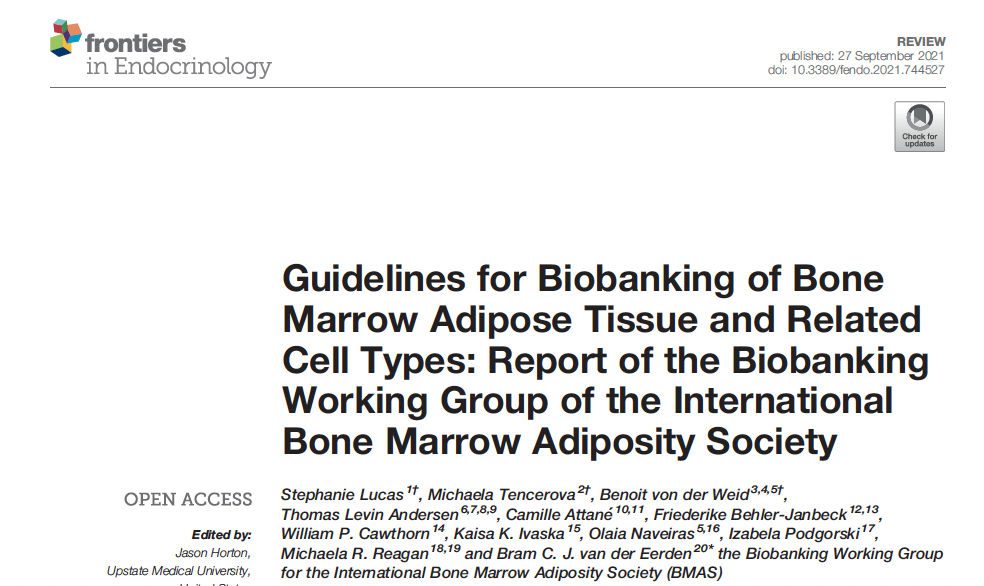Guidelines on Biobanking and Cell Isolation in Bone Marrow Adiposity Research
The Working Group on Biobanking published their Guidelines in Frontiers in Endocrinology in September 2021 (link)
Abstract
Over the last two decades, increased interest of scientists to study bone marrow adiposity (BMA) in relation to bone and adipose tissue physiology has expanded the number of publications using different sources of bone marrow adipose tissue (BMAT). However, each source of BMAT has its limitations in the number of downstream analyses for which it can be used.
Based on this increased scientific demand, the International Bone Marrow Adiposity Society (BMAS) established a Biobanking Working Group to identify the challenges of biobanking for human BMA-related samples and to develop guidelines to advance establishment of biobanks for BMA research. BMA is a young, growing field with increased interest among many diverse scientific communities. These bring new perspectives and important biological questions on how to improve and build an international community with biobank databases that can be used and shared all over the world. However, to create internationally accessible biobanks, several practical and legislative issues must be addressed to create a general ethical protocol used in all institutes, to allow for exchange of biological material internationally.
In this position paper, the BMAS Biobanking Working Group describes similarities and differences of patient information (PIF) and consent forms from different institutes and addresses a possibility to create uniform documents for BMA biobanking purposes. Further, based on discussion among Working Group members, we report an overview of the current isolation protocols for human bone marrow adipocytes (BMAds) and bone marrow stromal cells (BMSCs, formerly mesenchymal), highlighting the specific points crucial for effective isolation. Although we remain far from a unified BMAd isolation protocol and PIF, we have summarized all of these important aspects, which are needed to build a BMA biobank.
In conclusion, we believe that harmonizing isolation protocols and PIF globally will help to build international collaborations and improve the quality and interpretation of BMA research outcomes.

